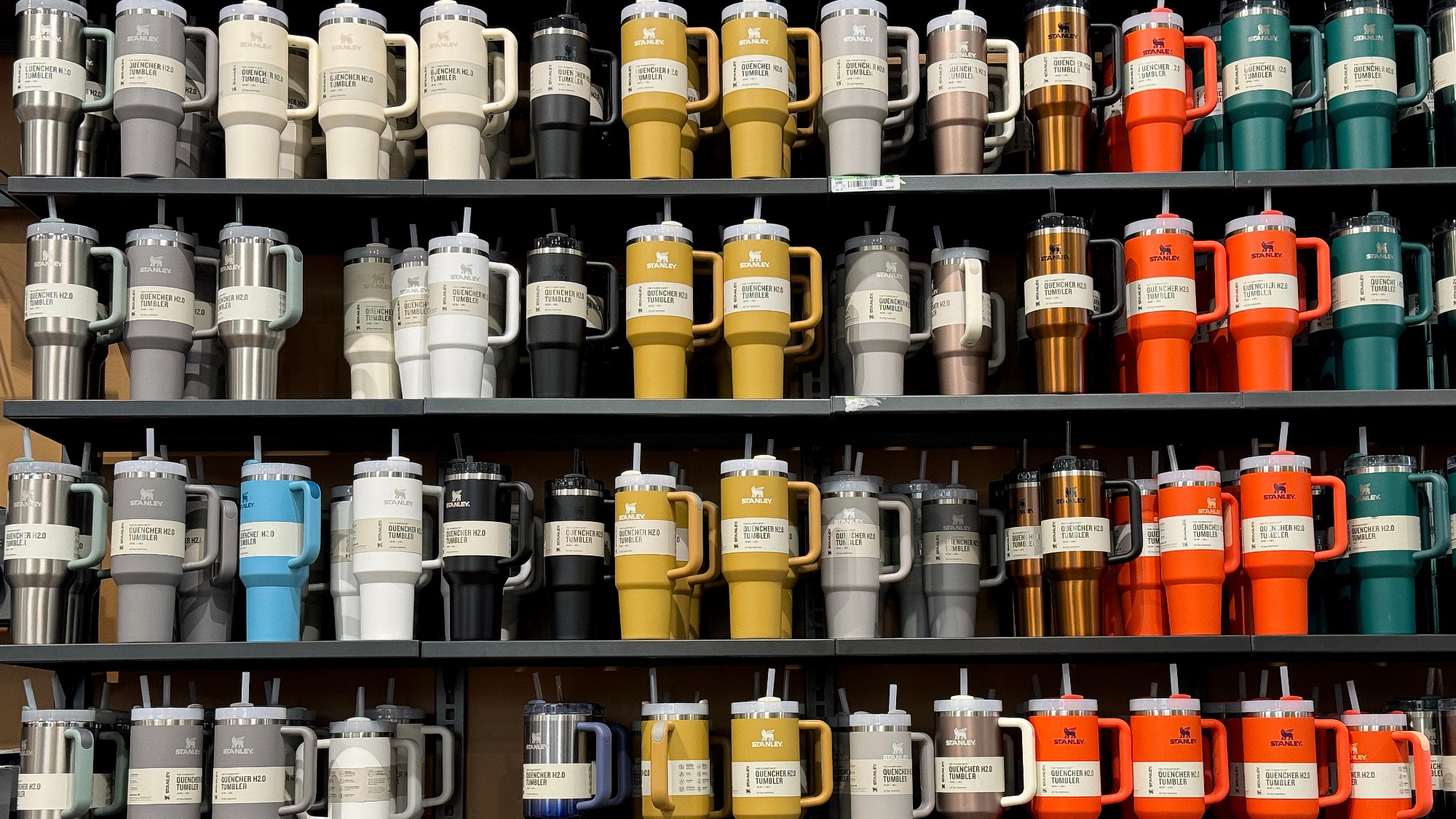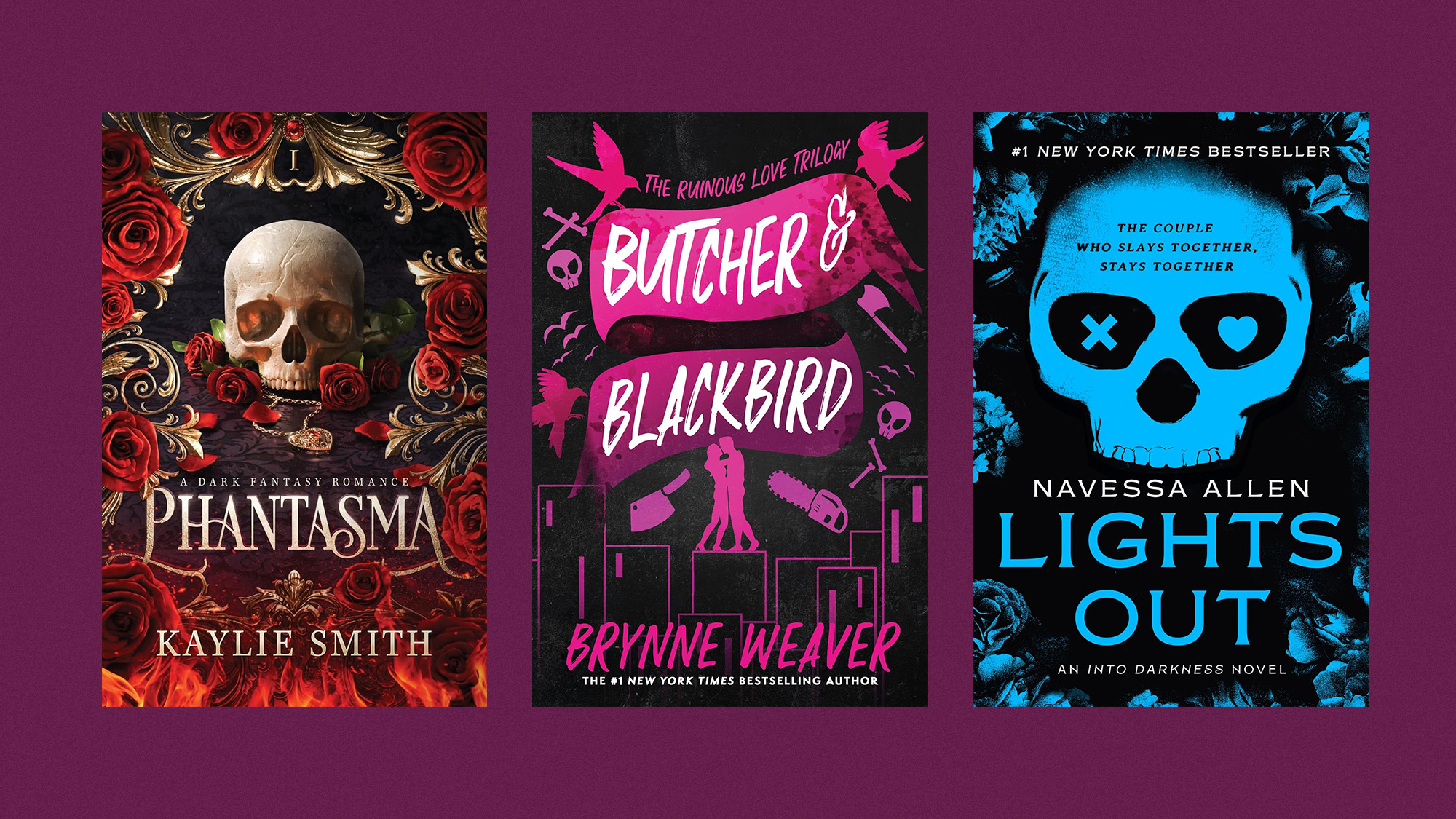The Stanley tumbler craze is far more than a viral trend run amok
The USA is doing what it does best


A free daily email with the biggest news stories of the day – and the best features from TheWeek.com
You are now subscribed
Your newsletter sign-up was successful
Watch a month go by; see a viral buying trend explode. Such is life in the consumerism-happy United States of America. Recently, a shopping blitz for the Valentine's Day editions of the chunky insulated Stanley tumbler rolled across the internet, into big-box stores and across middle schools. What this says about America is screamed at a much higher decibel than the jangle of slow-melting ice cubes in the tumblers themselves.
Background
For the last few years, Stanley, the 100-plus-year-old company behind those green thermoses from camping trips of yore, has been invading the consumer consciousness. First, the company's Quencher tumbler was featured in The Buy Guide, an affiliate marketing site run by a gaggle of mom influencers. "Every time we linked it, it would sell out so quickly," Ashlee LeSueur, one of The Buy Guide's owners, said to The New York Times. The Buy Guide kept selling the tumblers — and selling out. Social media influencers soon hopped aboard, and sales catapulted. "We firmly believe that we will become one of the leading lifestyle brands in the world over the next few years," Terence Reilly, Stanley's CEO as of 2020, said on a Harvard Business Review podcast episode.
The latest
Fast forward to early 2024, when Stanley, after continuing its cultural and fiscal ascent, released a Valentine's Day edition of the Quencher tumbler. Consumerist mayhem ensued. Some cultural critics were blinkered. "There is no real reason any of this happened, or at least no reason that will feel satisfying to you. Sometimes a cup is just a cup in the right place at the right time," said Amanda Mull in The Atlantic. As if these things just happen. Not, rather, because there are forces that obligate such trends.
The Week
Escape your echo chamber. Get the facts behind the news, plus analysis from multiple perspectives.

Sign up for The Week's Free Newsletters
From our morning news briefing to a weekly Good News Newsletter, get the best of The Week delivered directly to your inbox.
From our morning news briefing to a weekly Good News Newsletter, get the best of The Week delivered directly to your inbox.
"What might appear to be an organic phenomenon … is actually an engineered corporate crossover," said Kyle Chayka, writing about the boardroom calculations behind Stanley's rise, in The New Yorker. "Companies prepare carefully, and expensively, to cultivate their moments of ubiquity. They leverage our attention … to convert online viewers into fans and customers." Could Stanley predict how exactly would-be consumers would react to its plan for temporary market-share conquest? Nope. Did Stanley grasp there is a stout pipeline from old-timey brand to ironic influencer-sparked consumerism? You betcha.
The reaction
One aftereffect Stanley likely did not forecast was the supervening middle-school bullying. Batches of preteens across the country became obsessed with Stanley tumblers and, in January 2024, broadcasted their new scores when they returned from holiday break. "Nicole Walker, a sixth-grade science teacher in Mississippi, estimated that about half her students lug them from class to class," Julia Reinstein wrote in The Cut. "I wish I could have taken a picture today at lunch. At this one table, it was like every girl had a Stanley cup," Walker said.
A powder keg of class tensions detonated when kids without Stanleys or with knockoff versions started being bullied. And so began a moral struggle across a variety of social media platforms over whether parents should buy a tumbler for their Stanley-less child or let that child deal with the bullying. @cal_cifer_2.0, a teacher, distilled the two sides of the brouhaha in a TikTok video.
Then they went on to analyze the classism afoot. "If everyone with the financial means buys their kid a Stanley cup, does that then mean the only people getting bullied … will be those low-income kids who can't afford one?"
A free daily email with the biggest news stories of the day – and the best features from TheWeek.com
Cultural critic Ashtin Berry gathered the threads on Instagram. She tied together capitalism, white supremacy, resource-hoarding and weaponized incompetence in a series of posts dissecting the Stanley-centric bullying of middle schoolers and parents' role in it.
In particular, she had words for those parents who threw their hands in the air, defeated, and bought their child a Quencher. "Everyone's parenting or lack thereof," Berry said, "affects other children. And while most do not get the privilege to parent how they dream to, it's wild to act as if adults have no power to guide and push against the harms of consumption."
Scott Hocker is an award-winning freelance writer and editor at The Week Digital. He has written food, travel, culture and lifestyle stories for local, national and international publications for more than 20 years. Scott also has more than 15 years of experience creating, implementing and managing content initiatives while working across departments to grow companies. His most recent editorial post was as editor-in-chief of Liquor.com. Previously, he was the editor-in-chief of Tasting Table and a senior editor at San Francisco magazine.
-
 Key Bangladesh election returns old guard to power
Key Bangladesh election returns old guard to powerSpeed Read The Bangladesh Nationalist Party claimed a decisive victory
-
 Judge blocks Hegseth from punishing Kelly over video
Judge blocks Hegseth from punishing Kelly over videoSpeed Read Defense Secretary Pete Hegseth pushed for the senator to be demoted over a video in which he reminds military officials they should refuse illegal orders
-
 Trump’s EPA kills legal basis for federal climate policy
Trump’s EPA kills legal basis for federal climate policySpeed Read The government’s authority to regulate several planet-warming pollutants has been repealed
-
 Mail incoming: 9 well-made products to jazz up your letters and cards
Mail incoming: 9 well-made products to jazz up your letters and cardsThe Week Recommends Get the write stuff
-
 Spoil those special someones with these charming Valentine’s Day gifts
Spoil those special someones with these charming Valentine’s Day giftsThe Week Recommends Make them ooh and aah
-
 Admin night: the TikTok trend turning paperwork into a party
Admin night: the TikTok trend turning paperwork into a partyThe Explainer Grab your friends and make a night of tackling the most boring tasks
-
 Child-free train carriages: has push for adults-only spaces gone too far?
Child-free train carriages: has push for adults-only spaces gone too far?Talking Point Under-12s ban on premium commuter train carriages in France sparks backlash across the political divide
-
 The 8 best animated family movies of all time
The 8 best animated family movies of all timethe week recomends The best kids’ movies can make anything from the apocalypse to alien invasions seem like good, wholesome fun
-
 The best dark romance books to gingerly embrace right now
The best dark romance books to gingerly embrace right nowThe Week Recommends Steamy romances with a dark twist are gaining popularity with readers
-
 Hawai‘i: a kingdom crossing oceans – a ‘thrilling’ exhibition
Hawai‘i: a kingdom crossing oceans – a ‘thrilling’ exhibitionThe Week Recommends With some items on display for the first time since 1900, the British Museum’s new show gives voice to a ‘fascinating, rarely heard culture’
-
 Down with Uno, up with this exciting collection of one-of-a-kind travel games
Down with Uno, up with this exciting collection of one-of-a-kind travel gamesThe Week Recommends Game on!
